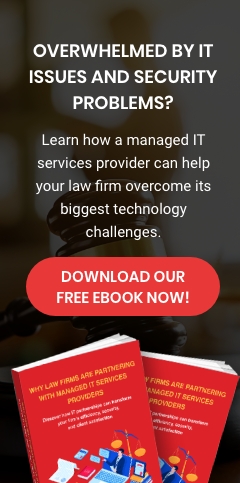It's always a good idea to think about what your needs are before buying a new laptop. Do you need a lot of storage space? Are you more comfortable using Windows or Mac? How much RAM do you need?
If you're looking for a new business laptop for your business in California, we can help. In this guide, we'll discuss the features and specifications that you should be looking for when purchasing a new laptop.
Size
You want something that is portable and comfortable to use. A laptop that is too large can be cumbersome and difficult to transport. Conversely, a laptop that is too small can be difficult to use if you need to type for long periods of time or view several documents side by side. The ideal size for a business laptop is one that you can easily slip into a laptop bag and carry around with you.
Standard laptops have a screen size of around 15–17 inches, but smaller ones that measure around 12–14 inches are more compact and therefore lighter to carry around. In terms of weight, a laptop that is no heavier than 1.5 kilograms is ideal.
Operating system
Windows laptops are the most popular choice among business users, but there are also many excellent Mac and Linux options. Remember to choose an operating system (OS) that you're comfortable using.
Here are some of the pros and cons of each OS to help you decide.
| Windows | Mac | Linux |
|---|---|---|
| Pros: Provides a large library of freeware and shareware apps Most devices available in the market are Windows-compatible Support is easy to get Cons: Prone to spyware, viruses, and other security threats Limited access to the library of free open-source software High-level IT support is needed to solve most system problems |
Pros: Very easy to use More secure and more stable than Windows Provides full access to a large library of free open-source apps Cons: Expensive Limited hardware upgrades Support is more difficult to get and requires visiting an Apple store for most system problems |
Pros: Provides full access to a free open-source library of software Supports a wide range of programming languages Runs on any hardware Cons: Limited support for proprietary apps Has an overwhelming volume of software options Limited vendor support |
Storage
The two main options for storage are hard disk drives (HDD) and solid-state drives (SSD). HDDs are the traditional type of storage, and they're usually cheaper than SSDs. However, they are not as fast and tend to break down more often. On the other hand, SSDs are newer, quieter, and faster than HDDs, but they're also more expensive. An HDD might be the better option if you want more storage space. But if speed is important to you, an SSD is the way to go.
Random access memory (RAM)
Determining the amount of RAM you need depends on how you will use your computer. If you’re using it mostly for simple tasks like internet browsing, email, and creating spreadsheets, a laptop with less RAM will do. But if you’re using it for resource-intensive tasks like video editing and processing or gaming, you'll need more RAM. Most business laptops come with at least 4 GB of RAM, but some models offer up to 16 GB.
Processor
Intel and AMD are the two main manufacturers of processors, and they offer a variety of options to choose from. The two most important factors to consider when selecting a processor are the number of cores and the clock speed.
Dual-core processors are the most common type of processor, and they're adequate for most business tasks. If you need more power, i.e., you need to work on more demanding tasks, you can opt for a quad-core processor. These are more expensive, but they offer a significant performance boost.
The clock speed is measured in GHz, and it indicates how fast the processor can handle instructions. A processor with a higher clock speed can manage more tasks simultaneously, so it's a good choice if you often have to use multiple programs at once.
Battery life
You want a laptop that can last through an entire workday without needing to be constantly plugged in. Some laptops only offer a few hours of battery life, while others can last for more than 12 hours. How long your laptop battery lasts depends on factors like how bright the screen is and what kinds of programs you use.
Ports
USB-C is the newest port type and it can be used for both charging and data transfer. Many newer business laptops come with only USB-C ports, so if you need to use older peripherals like printers or scanners, you'll need to make sure they're compatible. But you can also just get adapters that let you use older peripherals with new laptops. If you have a lot of USB-A devices, consider investing in a hub that allows you to connect several peripherals to one USB-C port.
Price
Finally, price is always a factor when buying a new laptop. If you’re on a budget, find something that has the features and specifications that you need, and without the unnecessary features that might jack up the cost. Fortunately, there are many excellent business laptops available at a variety of price points.
Related reading: Top 7 Signs you need to buy new PCs for your business
These are just some of the things to keep in mind when buying a new laptop for your business. Need professional advice and support for your business’s computer and other hardware needs? Talk to USWired’s IT experts today.


